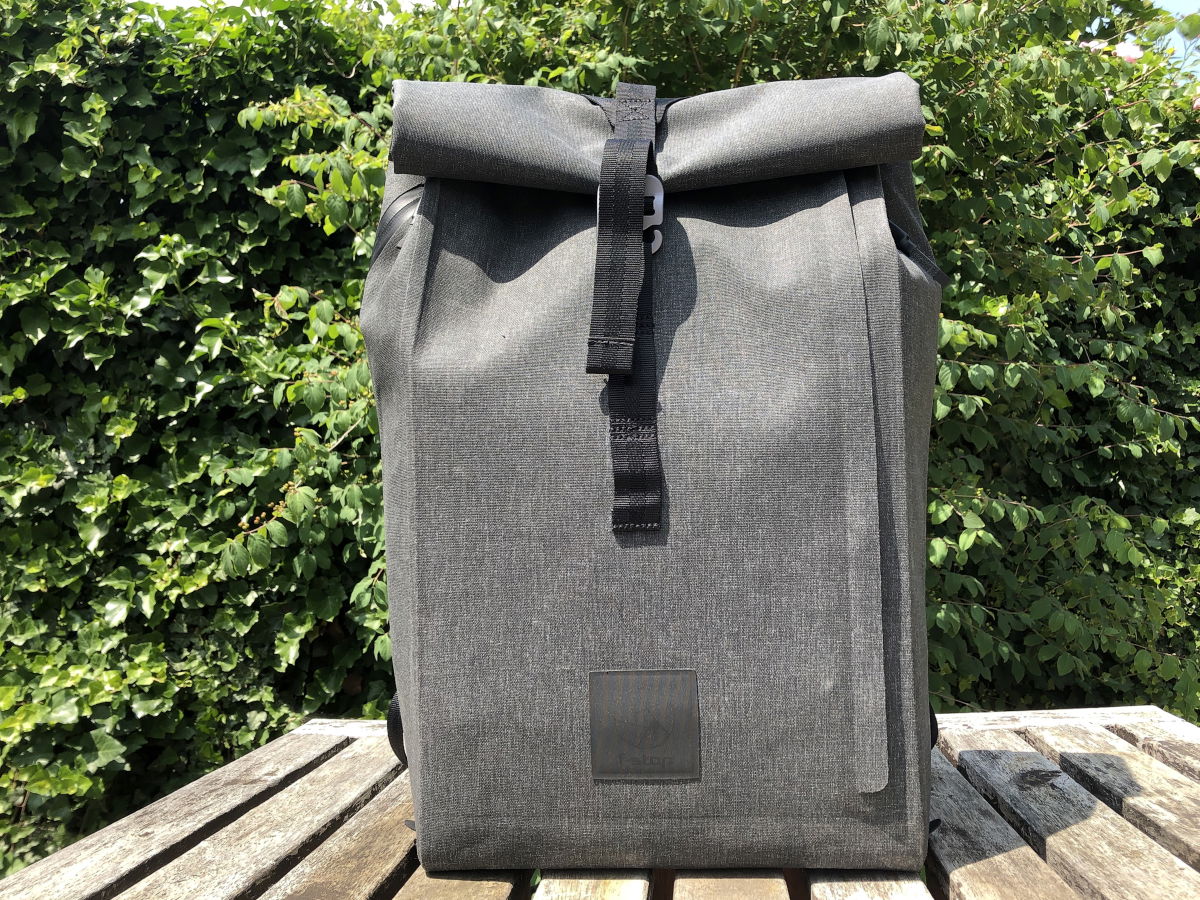As technology for the best 4K cameras grows, so does the technology to fit it all into a handheld device. We are now at a point where most new digital cameras have video functions. And a big majority of these can shoot in 4K.
But like any digital camera, each brand and model specializes in different features. This is noticeable in how brands deal with accessibility and ease of filmmaking.
Today, we determine the best 4K camera on the market. And we also take you through all the different features across a range of cameras with 4K video capabilities. These options range from your top-end professional video camera to smaller, more affordable 4K cameras.
Our top pick camera delivers 5.8K video and has a fan-cooled sensor and sensor-shift image stabilization.
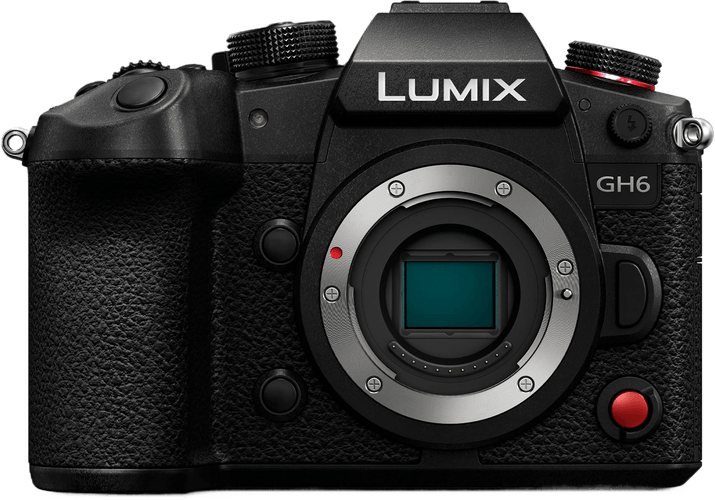
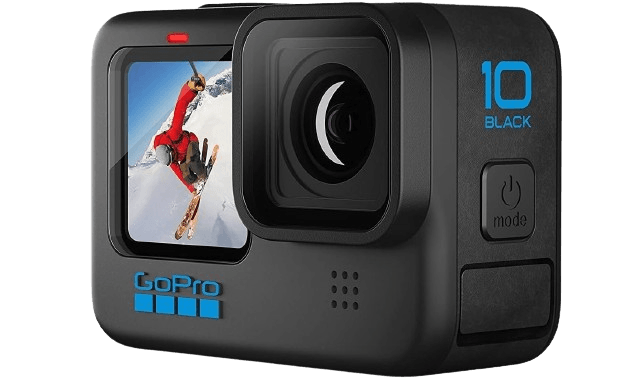
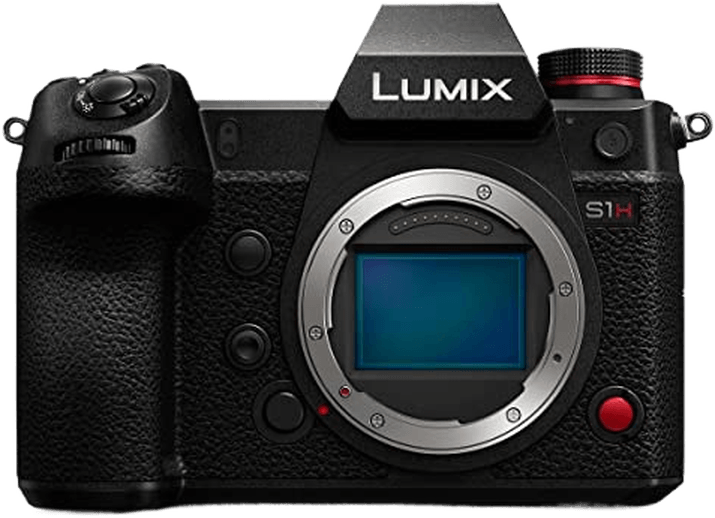
We’re going to look at the details of the cameras we have chosen one by one. Before we do that, here is a summary of all our recommendations.



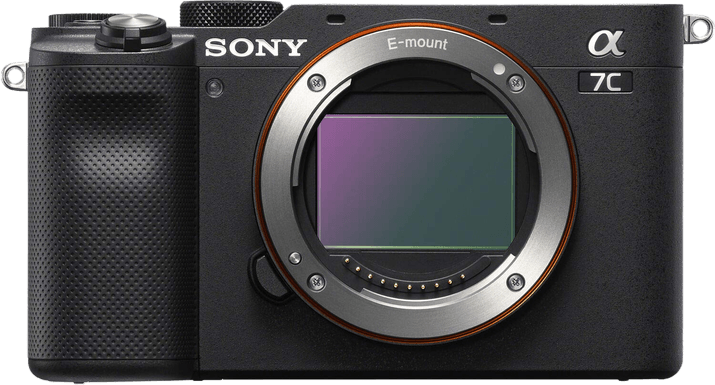

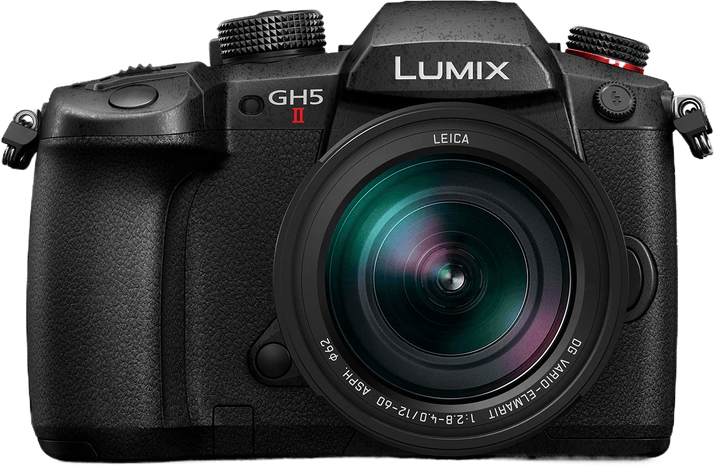
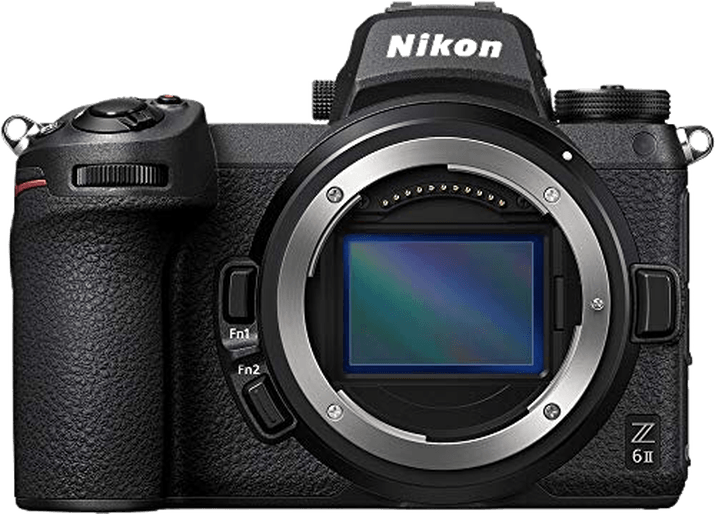
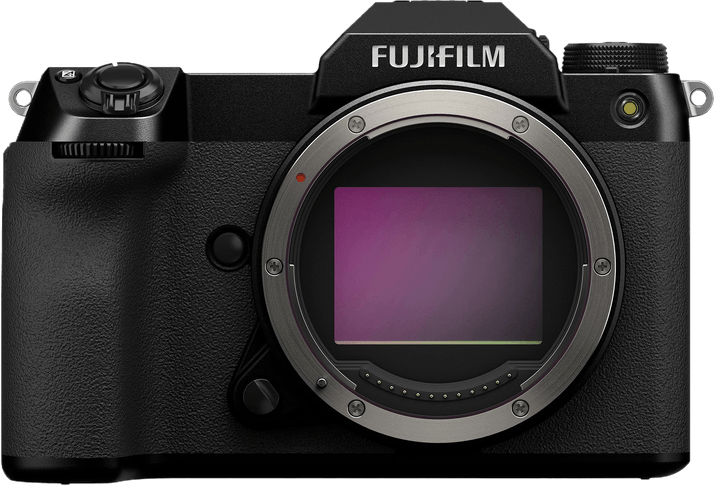
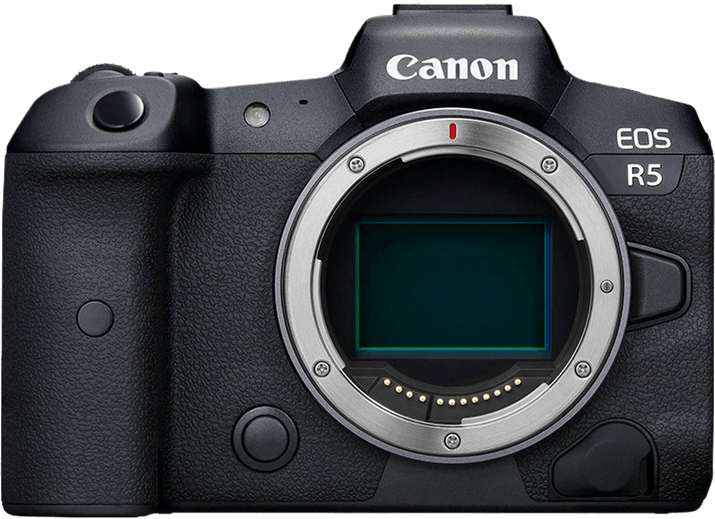
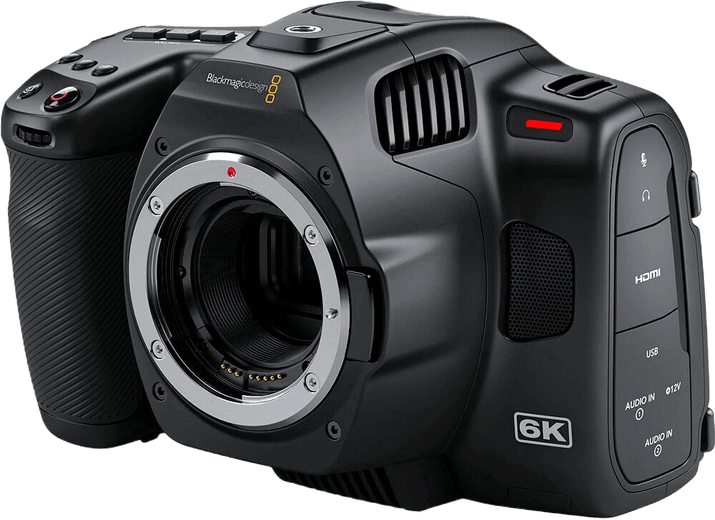
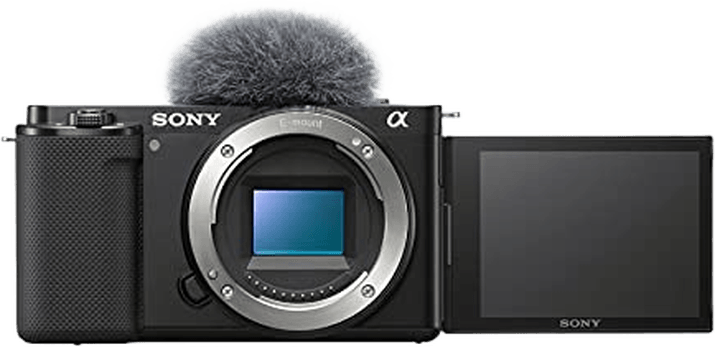
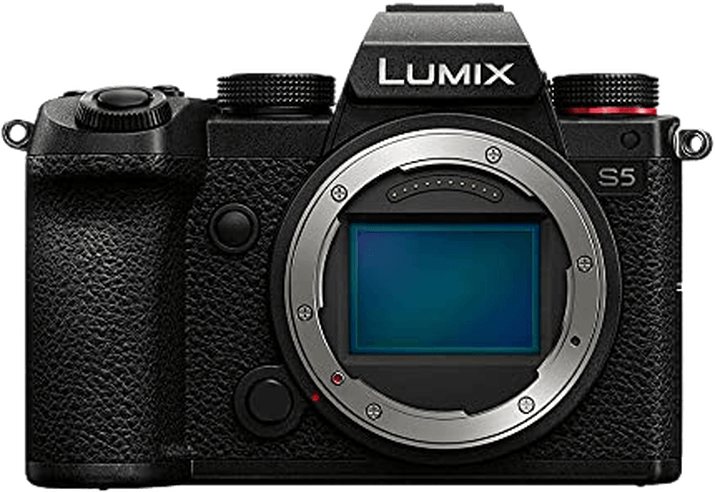
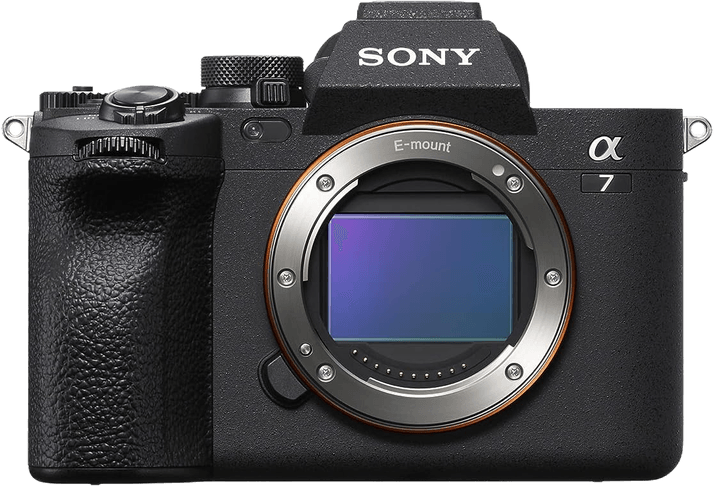
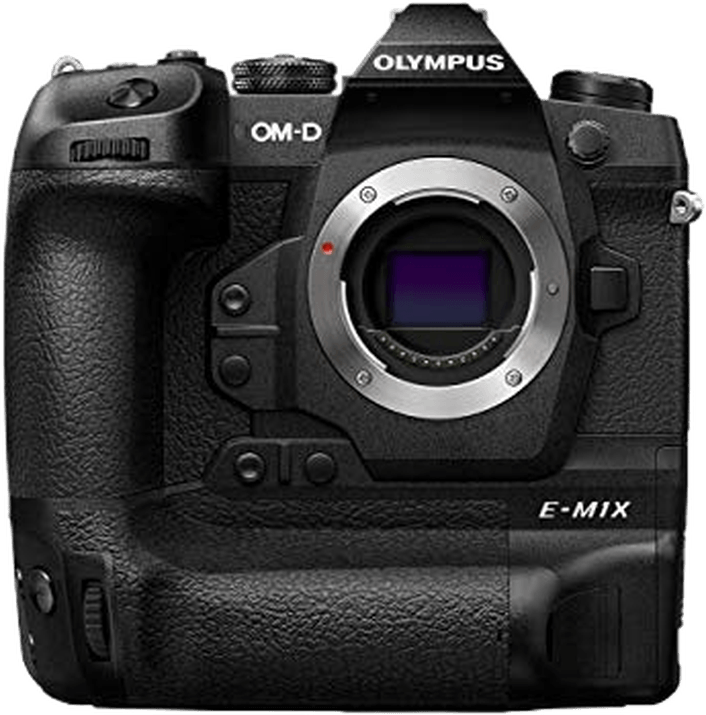
Now let’s look at those cameras in detail, starting with our top pick.

| Brand |
Brand
Panasonic
|
| Megapixels |
Megapixels
25 MP |
| Max Video Dimensions |
Max Video Dimensions
5760 x 2880 px
|
| Max Video Resolution |
Max Video Resolution
|
| Sensor Format |
Sensor Format
|
| Lens Mount |
Lens Mount
Micro 4/3
|
| Autofocus Points |
Autofocus Points
315 |
| Minimum ISO (Native) |
Minimum ISO (Native)
100 |
| Maximum ISO (Native) |
Maximum ISO (Native)
25,600 |
| Frame Rate |
Frame Rate
14 fps |
| Max Video Frame Rate |
Max Video Frame Rate
120 p
|
| Screen Size |
Screen Size
3-inches
|
| In-body Stabilization |
In-body Stabilization
Yes
|
| Best For |
Best For
Student or semi-pro looking for an excellent camera at a decent price
|
The Panasonic Lumix cameras are high on this list. So it’s not surprising they produce our best 4K camera with the Panasonic Lumix DC-GH6.
The camera has a Micro Four Thirds sensor that only shoots 25.2 MP images. But as mentioned before, a bigger sensor makes it harder to produce certain qualities for filmmaking.
Luckily, the GH6 takes CFexpress cards to match the power of the video settings available in this camera. You can shoot 5.7K video at 60 fps and even 5.8K at 30 fps. And with 4K video quality, you can shoot up to 120 fps and Full HD at 240 fps.
This is where the smaller sensor size comes in handy. The camera lets you internally record in Pro-Res 422 HQ and Pro-Res 422 codec videos. These are the industry standard. And it usually needs an external device added to a camera for these features.
Add all these features to an image stabilization system that compensates for 7.5 stops and you have yourself a serious movie camera!
A camera like this is perfect for a student or semi-professional. It’s great for those who want to make the best possible videos without a huge, expensive camera.
The GH6 is more than capable of shooting top-quality video. And some may be hard-pressed to tell the difference in results from a bigger-sized camera.

| Brand |
Brand
GoPro
|
| Megapixels |
Megapixels
23 MP |
| Max Video Dimensions |
Max Video Dimensions
5312 x 2988 px
|
| Max Video Resolution |
Max Video Resolution
|
| Sensor Format |
Sensor Format
1/2.3-inch
|
| Lens Mount |
Lens Mount
Fixed
|
| Autofocus Points |
Autofocus Points
1
|
| Minimum ISO |
Minimum ISO
100
|
| Maximum ISO |
Maximum ISO
3200
|
| Frame Rate |
Frame Rate
120 fps
|
| Max Video Frame Rate |
Max Video Frame Rate
120 p
|
| Screen Size |
Screen Size
2.27-inches
|
| In-body Stabilization |
In-body Stabilization
Yes
|
| Best For |
Best For
Sports, action, and harsh environments
|
The GoPro Hero10 Black is a 4K video camera. It’s been replaced by the HERO11 Black as GoPro’s top model, but it still offers impressive features. Its small and robust body makes recording in difficult conditions possible.
It has advanced weather sealing—the Hero10 can go 33 feet (10 m) underwater. And it has fantastic image stabilization for any bumpy movement or thrilling adventures.
GoPro has achieved all of this even with a smaller frame sensor than most cameras on this list. The smaller size frame heavily reduces image quality, dynamic range, and how the camera captures color.
And it also directly impacts video quality. But it’s worth the sacrifice when you can use your camera in truly unique environments.
GoPro continues to develop some great advancements in its camera sensor. The Hero10 can shoot in 5.3K video quality at 60 fps.
The sensor also has clear 4K quality at an amazing 120 fps. This is superb for such a small, handheld device. You can even record in 8x slow motion at 2.7K.
My favorite feature is the forward-facing screen. This can make framing much easier for amateur filmmakers who must concentrate more on their actions.
GoPro has developed different capture modes as well. There is a Duration Capture mode, a Scheduled Capture mode, and a Live Burst mode. These can be a godsend for planning and capturing particular situations or concepts.

| Brand |
Brand
Panasonic
|
| Megapixels |
Megapixels
24 MP |
| Max Video Dimensions |
Max Video Dimensions
5952 x 3988 px
|
| Max Video Resolution |
Max Video Resolution
|
| Sensor Format |
Sensor Format
|
| Lens Mount |
Lens Mount
Leica L
|
| Autofocus Points |
Autofocus Points
225 |
| Minimum ISO (Native) |
Minimum ISO (Native)
100 |
| Maximum ISO (Native) |
Maximum ISO (Native)
51,200 |
| Frame Rate |
Frame Rate
9 fps |
| Max Video Frame Rate |
Max Video Frame Rate
120 p
|
| Screen Size |
Screen Size
3.2-inches
|
| In-body Stabilization |
In-body Stabilization
Yes
|
| Best For |
Best For
Long shoots where the cooling will help to keep you rolling
|
The Panasonic Lumix S1H is a full frame mirrorless camera. It can film in 4K up to 60 fps. This is the lowest video quality possible if you still want a smooth, crisp 4K video.
The Lumix S1H shoots in 4:2:2 color sampling. It is among the best formats you can get. So you can use this camera in a professional capacity.
The camera has professional file-handling features. Most important is its RAW video data output. This is crucial for professional film creation.
You also get a wide range of recording formats to support multiple types and styles of shooting. This allows you to shoot videos up to 6K.
You can only shoot at 24 fps with 4:2:0 color sampling. But Panasonic does provide 5.9K in a different aspect ratio where you can shoot at 30 fps.
It is impressive how small and light this professional-standard camera is. With a reduced size and shape, Panasonic incorporates other features in the Lumix S1H you can usually only find on smaller cameras.
One helpful feature is the tilt and free-angle rear screen. This can be extremely useful when shooting videos of yourself without a team.
This camera also has better heat management, which sometimes affects how long you can shoot a video. Panasonic claims it’s the first time a full frame mirrorless camera has a cooling fan system. This system supports unlimited video recording. And it also helps the battery life.
I’m also a big fan of Lumix’s advancements in how their sensors handle low-light situations. They are a must-have for any videographer.
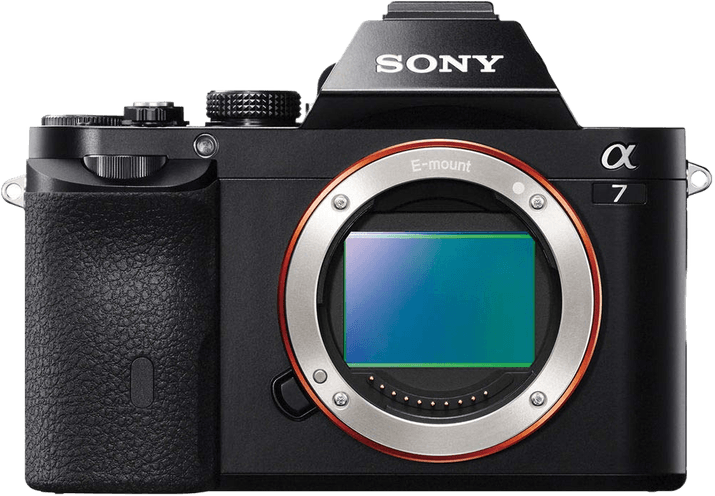
| Brand |
Brand
Sony
|
| Megapixels |
Megapixels
24 MP |
| Max Video Dimensions |
Max Video Dimensions
1920 x 1080 px
|
| Max Video Resolution |
Max Video Resolution
|
| Sensor Format |
Sensor Format
|
| Lens Mount |
Lens Mount
Sony FE
|
| Autofocus Points |
Autofocus Points
117 |
| Minimum ISO (Native) |
Minimum ISO (Native)
100 |
| Maximum ISO (Native) |
Maximum ISO (Native)
25,600 |
| Frame Rate |
Frame Rate
5 fps |
| Max Video Frame Rate |
Max Video Frame Rate
60 p
|
| Screen Size |
Screen Size
3-inches
|
| In-body Stabilization |
In-body Stabilization
No
|
| Best For |
Best For
Videographers on the move, like vloggers or streamers
|
The Sony Alpha 7C is an excellent compact full frame mirrorless camera for 4K video recording. Because it’s so small and portable, there are some compromises in its capabilities.
This first drawback is it can only shoot in 4K at 30 fps. But you can still record in Full HD at 120 fps, which gives you brilliant results. You can also shoot at a 6K similarity with oversampling.
Sony provides the Alpha 7C with its S-Log3 feature. It allows a whopping dynamic range of up to 14 stops. This lets you capture details in shadows and highlights with a great amount of information.
Sony has also incorporated a brilliant AI autofocus tracking feature. It allows you to shoot videos with real time eye focus tracking. It’s super helpful for keeping a moving model in focus for the duration of your video.
The tracking feature even allows you to track animal eyes. You can use this for everything from taking pictures of your pets to wildlife shoots.
The biggest advantage of this camera is its size and weight. Sony Alpha 7C can fit easily on a camera grip. So you can use the camera on the go.
In addition, you have a vari-angle screen. It allows you to shoot from multiple directions while still seeing the Live View playback.
On top of that, you get amazing 5-axis image stabilization. So if you’re walking around videoing yourself, you have a huge reduction in camera shake. All these features could make it the best 4K camera for a streamer or vlogger.

| Brand |
Brand
DJI
|
| Megapixels |
Megapixels
64 MP |
| Max Video Dimensions |
Max Video Dimensions
3840 x 2160 px
|
| Max Video Resolution |
Max Video Resolution
|
| Sensor Format |
Sensor Format
1/1.7-inch
|
| Lens Mount |
Lens Mount
Fixed
|
| Autofocus Points |
Autofocus Points
1
|
| Minimum ISO |
Minimum ISO
100
|
| Maximum ISO |
Maximum ISO
6400
|
| Frame Rate |
Frame Rate
1 fps
|
| Max Video Frame Rate |
Max Video Frame Rate
60 p
|
| Screen Size |
Screen Size
1-inch
|
| In-body Stabilization |
In-body Stabilization
Yes
|
| Best For |
Best For
Time-lapse and first-person filming
|
The DJI Pocket 2 is a great video camera for people who don’t need professional controls but want professional quality. DJI is known for being the top industry-standard company for drone photography.
The Pocket 2 is the same camera used on DJI drones. But it’s attached to a small, handheld body.
It makes sense because DJI had to develop technology to reduce camera size and weight to allow the device to fly well. So why not produce a handy travel companion?
Of course, this camera is not for professionals. But it still shoots 4K video at 60 fps, which is more than some cameras on this list!
Again, this is made easier with a smaller sensor that affects how well it performs photographically. But you can take normal photographs with 64 MP quality.
With advanced technology allowing such a small device to capture excellent video, it also has some great extra features. The DJI Pocket 2 features a head that can rotate and tilt at every degree. This helps create cinematic shots.
And it also pairs extremely well with the ActiveTrack 3.0 technology. This tracking AI can identify a subject you select. Then the device tilts and shifts itself according to where your subject is located.
I also really like the Story mode that comes with this device. It takes all your footage and automatically stitches together a short movie. It’s perfect for people who travel and have limited knowledge of video editing.
You also get a time-lapse setting to take beautiful scenic shots. You can also shoot in HDR video mode, which can be great for tough lighting situations.

| Brand |
Brand
Panasonic
|
| Megapixels |
Megapixels
20.33 MP |
| Max Video Dimensions |
Max Video Dimensions
4992 x 3774 px
|
| Max Video Resolution |
Max Video Resolution
|
| Sensor Format |
Sensor Format
|
| Lens Mount |
Lens Mount
Micro 4/3
|
| Autofocus Points |
Autofocus Points
225 |
| Minimum ISO (Native) |
Minimum ISO (Native)
100 |
| Maximum ISO (Native) |
Maximum ISO (Native)
25,600 |
| Frame Rate |
Frame Rate
12 fps |
| Max Video Frame Rate |
Max Video Frame Rate
30 p
|
| Screen Size |
Screen Size
3-inches
|
| In-body Stabilization |
In-body Stabilization
Yes
|
| Best For |
Best For
Livestreaming from location
|
The Panasonic Lumix GH5 II was one of the first hybrid mirrorless camera systems that featured a huge focus on 4K video. The 23 MP camera can shoot Cinema 4K video up to 60 fps.
You also capture video in 4:2:2, 10-bit format. So there is no compromise in the video’s color handling.
You also get pre-installed V-Log L which features a dynamic range of 12 stops. Along with all this, you get great 5-axis image stabilization built into the camera body.
One feature that makes this camera stand out is the USB power supply and power charging. It almost extends your battery life infinitely.
You must buy a separate battery for this feature. But this allows you to constantly charge your camera while using it. This is convenient for long shoots in the studio that demand reliability.
The camera also comes with livestreaming features built in. The camera connects to a smartphone or laptop wirelessly or with cables. You can then directly stream live video at a maximum output of 4K at 30 fps.
One of the best features of Lumix cameras is that you can pair them with Leica lenses. This means finding the right optics to produce sharp imagery is easy.
I’m also a fan of its manageable size, weight, and angled screen. All are a huge help in filmmaking.

| Brand |
Brand
Nikon
|
| Megapixels |
Megapixels
24.5 MP |
| Max Video Dimensions |
Max Video Dimensions
3840 x 2160 px
|
| Max Video Resolution |
Max Video Resolution
|
| Sensor Format |
Sensor Format
|
| Lens Mount |
Lens Mount
Nikon Z
|
| Autofocus Points |
Autofocus Points
273 |
| Minimum ISO (Native) |
Minimum ISO (Native)
100 |
| Maximum ISO (Native) |
Maximum ISO (Native)
51,200 |
| Frame Rate |
Frame Rate
14 fps |
| Max Video Frame Rate |
Max Video Frame Rate
120 p
|
| Screen Size |
Screen Size
3.2-inches
|
| In-body Stabilization |
In-body Stabilization
Yes
|
| Best For |
Best For
Vlogging when you need to travel light
|
The Nikon Z6 II is not Nikon’s newest mirrorless camera with video recording. But it still comes up as the best Nikon 4K camera.
With 24.5 MP, it’s not among the heavy hitters in the Nikons range nowadays. But the way the camera handles 4K quality is still unmatched by others. This camera allows you to shoot great 4K video at 60 fps and full HD video at 120 fps.
The Nikon Z6 II has a dual card slot to make your work more organized or give you that extra memory boost. One slot takes SD cards.
The other slot takes CFexpress, which is ideal for shooting 4K video. They’re a lot quicker when processing the data.
The faster cards also help with the Z6 II’s ability to connect to a compatible ATOMOS external recorder. This lets you export videos as Pro-Res RAW files. And it gives you better preservation of data for more control in the editing process.
You can adjust autofocus speeds and tracking sensitivity during recording. The Z6 II allows you to keep focus tracking through eye detection or animal detection while filming. These extremely handy features help you get the cleanest image possible.
Another feature that lends itself to filmmakers is the camera’s fully customizable display. You can strip your display to the essentials you need for your filming!

| Brand |
Brand
Fujifilm
|
| Megapixels |
Megapixels
102 MP |
| Max Video Dimensions |
Max Video Dimensions
4096 x 2160 px
|
| Max Video Resolution |
Max Video Resolution
|
| Sensor Format |
Sensor Format
|
| Lens Mount |
Lens Mount
Fujifilm G
|
| Autofocus Points |
Autofocus Points
425 |
| Minimum ISO (Native) |
Minimum ISO (Native)
100 |
| Maximum ISO (Native) |
Maximum ISO (Native)
12,800 |
| Frame Rate |
Frame Rate
5 fps |
| Max Video Frame Rate |
Max Video Frame Rate
60 p
|
| Screen Size |
Screen Size
3.2-inches
|
| In-body Stabilization |
In-body Stabilization
Yes
|
| Best For |
Best For
Videographers looking for a larger sensor size
|
The Fujifilm GFX100S is the camera with the highest megapixel sensor on this list. But, that isn’t everything when it comes to filmmaking.
When recording videos, the most important factor is the frame rate and quality. And this can be hard to get right with medium format sensors. That’s why the GFX100 is positioned lower down on our list.
Even though you get a 102 MP sensor, the camera can only record 4K at 30 fps. You still get the full 10-bit color range. But that’s a 30 fps difference compared to its competitors. And that amount does a lot for the frame rate.
But you can shoot at 60 fps in Full HD. And all video files are in RAW format for the best editing quality.
One interesting feature of the GFX100S? You can shoot in two different aspect ratios—16:9 or 17:9.
I’m also a fan of the interface you use when filming. It’s simple to navigate. And it allows you to focus on the important aspects of your work.
There is no subject tracking on this camera. But you do get face-detection AI while recording videos.
The Fujifilm GFX100S is also pretty compact and small for a camera of its caliber. This makes shooting high-quality videos a breeze. It’s easier to haul to locations like the mountains or other remote places.
Overall, the GFX100S is the perfect camera for anyone confident in their photography. It’s a camera that records well. But it isn’t strictly for filmmaking. It would suit a professional photographer who wants to try filmmaking but isn’t fully invested in it.

| Brand |
Brand
Canon
|
| Megapixels |
Megapixels
45 MP |
| Max Video Dimensions |
Max Video Dimensions
8192 x 4320 px
|
| Max Video Resolution |
Max Video Resolution
|
| Sensor Format |
Sensor Format
|
| Lens Mount |
Lens Mount
Canon RF
|
| Autofocus Points |
Autofocus Points
1,053 |
| Minimum ISO (Native) |
Minimum ISO (Native)
100 |
| Maximum ISO (Native) |
Maximum ISO (Native)
51,200 |
| Frame Rate |
Frame Rate
20 fps |
| Max Video Frame Rate |
Max Video Frame Rate
120 p
|
| Screen Size |
Screen Size
3.2-inches
|
| In-body Stabilization |
In-body Stabilization
Yes
|
| Best For |
Best For
Anyone looking for incredible 8K footage
|
The Canon EOS R5 is one of the best 4K cameras on our list regarding video quality. With the R5’s 45 MP sensor, you can shoot 4K at 120 fps!
You can even push it to shoot a 12-bit RAW video in 8K at 30 fps. But you don’t need to worry about running out of space with all this data. Canon provides you with dual card slots for both SD and CFexpress.
The in-body image stabilization allows for up to 8 stops of difference. This is a huge amount that turns a walking shot from a jerky view into a smooth one. Unfortunately, the in-body image stabilization doesn’t work on the 8K video setting.
Luckily, the camera’s battery life is also superb. It allows you to shoot better for longer.
Again, you get autofocus detection that can recognize the face or eyes of your subject. I like the added assists they provide for manual focusing.
Other video features I like include an 8K time-lapse setting. It can produce beautiful results. And it makes treks uphill worth it.
Also, connectivity with the Canon app allows for remote access even when shooting video. This can make organizing, viewing, and transferring images a lot easier.

| Brand |
Brand
Blackmagic Design
|
| Megapixels |
Megapixels
N/A
|
| Max Video Dimensions |
Max Video Dimensions
6144 x 3456
|
| Max Video Resolution |
Max Video Resolution
6K
|
| Sensor Format |
Sensor Format
Super 35
|
| Lens Mount |
Lens Mount
Active EF
|
| Autofocus Points |
Autofocus Points
1
|
| Minimum ISO |
Minimum ISO
400
|
| Maximum ISO |
Maximum ISO
3200
|
| Frame Rate |
Frame Rate
N/A
|
| Max Video Frame Rate |
Max Video Frame Rate
120 p
|
| Screen Size |
Screen Size
5-inches
|
| In-body Stabilization |
In-body Stabilization
No
|
| Best For |
Best For
Videographers who need a specialist dedicated video camera
|
The Blackmagic Pocket Cinema 6K Pro is the only 4K camera on our list strictly manufactured for professional filmmaking. It automatically makes it one of the best 4K cameras for filmmakers on this list.
Blackmagic has taken the shape of a standard DSLR or mirrorless camera and rebuilt it with professional filmmaking in mind. This means everything—from accessible, quick buttons to a new back panel—functions a bit differently.
Looking at the back panel, you can tell this camera was made for shooting video. The first feature you can’t miss is the huge 5-inch screen. It’s perfect for checking and assessing how your picture looks through the lens.
The screen is also touchscreen operated. This makes it super simple to navigate through the numerous controls.
Above this screen is one of my favorite features—built-in ND filter controls. It’s something you can add or subtract with the quick press of a button.
The camera features a Super 35 mm film sensor. It pretty much equates to a full frame camera.
You get the choice to have an optimized viewfinder specifically geared for professional shooting. This viewfinder can tilt and swivel and comes with different eyecups.
The viewfinder’s main feature is the extremely high-quality OLED (organic light-emitting display). It allows for accurate focus checking.

| Brand |
Brand
Sony
|
| Megapixels |
Megapixels
24 MP |
| Max Video Dimensions |
Max Video Dimensions
3840 x 1920 px
|
| Max Video Resolution |
Max Video Resolution
|
| Sensor Format |
Sensor Format
|
| Lens Mount |
Lens Mount
Sony E
|
| Autofocus Points |
Autofocus Points
425 |
| Minimum ISO (Native) |
Minimum ISO (Native)
100 |
| Maximum ISO (Native) |
Maximum ISO (Native)
32,000 |
| Frame Rate |
Frame Rate
11 fps |
| Max Video Frame Rate |
Max Video Frame Rate
120 p
|
| Screen Size |
Screen Size
3-inches
|
| In-body Stabilization |
In-body Stabilization
No
|
| Best For |
Best For
Streamers or influencers who want a 4K camera
|
The Sony Alpha ZV-E10 is a compact camera that shoots 4K video. It has a Micro Four Thirds sensor but still packs a punch, especially for its size!
This Sony handheld makes it on our list not for professionals but as one of the best 4K cameras for streamers or influencers. Sony built it with these new videography styles in mind. And it aims to give these users an all-in-one experience.
It simplifies often complex processes. A camera that shoots 30 fps at 4K while also shooting Full HD at 120 fps at this size is a rare find.
The features of more casual use than professional filmmaking are found all around the camera. This is most noticeable in the one-touch button on the top for background blurring or bokeh.
This is a Soft Skin setting you can adjust to multiple intensities. The setting brings more attention to your face. It works in conjunction with face-priority autofocus and auto exposure!
Overall, the ZV-EV 10 is mainly for people who don’t want to mess with custom video quality settings. The quick and easy settings are geared toward individual users who want good results without any hassle.

| Brand |
Brand
Panasonic
|
| Megapixels |
Megapixels
24.2 MP |
| Max Video Dimensions |
Max Video Dimensions
3840 x 2160 px
|
| Max Video Resolution |
Max Video Resolution
|
| Sensor Format |
Sensor Format
|
| Lens Mount |
Lens Mount
Leica L
|
| Autofocus Points |
Autofocus Points
225 |
| Minimum ISO (Native) |
Minimum ISO (Native)
100 |
| Maximum ISO (Native) |
Maximum ISO (Native)
51,200 |
| Frame Rate |
Frame Rate
7 fps |
| Max Video Frame Rate |
Max Video Frame Rate
60 p
|
| Screen Size |
Screen Size
3-inches
|
| In-body Stabilization |
In-body Stabilization
Yes
|
| Best For |
Best For
Videographers using a grip and needing effective image stabilization
|
The Panasonic Lumix DC-S5 is a full frame mirrorless camera. It’s a great camera for photography and also shoots cinema-quality video.
It has a 24.2 MP sensor that allows you to shoot up to 6K at 29.9 fps. And if you want to shoot in Full HD, you get 180 fps. That’s enough to produce amazing slow-motion shots. I’m also a big fan of the 4K HDR shooting.
Even the data and file handling are customized for video editing. A V-Log View Assist setting makes life easier for those who use the additional control settings for video editing.
It also comes with a 4K time-lapse setting. And it features dual native ISO (640 or 4000) to reduce noise but maintain dynamic range.
The speedy autofocus system on this camera is surprising. It has the face and animal recognition we see on some of the other cameras. And it’s extremely accurate.
The Lumix S5 also has an in-body stabilization system that gives you up to 6.5 stops. This means you can put the camera on a grip and walk about with minimal camera shake.
Panasonic has also done an amazing job of reducing the size and shape of this camera. You can use the camera on a grip with ease.

| Brand |
Brand
Sony
|
| Megapixels |
Megapixels
33 MP |
| Max Video Dimensions |
Max Video Dimensions
3840 x 2160 px
|
| Max Video Resolution |
Max Video Resolution
|
| Sensor Format |
Sensor Format
|
| Lens Mount |
Lens Mount
Sony E
|
| Autofocus Points |
Autofocus Points
759 |
| Minimum ISO (Native) |
Minimum ISO (Native)
100 |
| Maximum ISO (Native) |
Maximum ISO (Native)
51,200 |
| Frame Rate |
Frame Rate
10 fps |
| Max Video Frame Rate |
Max Video Frame Rate
120 p
|
| Screen Size |
Screen Size
3-inches
|
| In-body Stabilization |
In-body Stabilization
Yes
|
| Best For |
Best For
Capturing steady images without external gimbals
|
The Sony a7 IV camera series has established itself as one of the top series in the whole photography market. Now, the Alpha 7 IV solidifies itself as one of the best 4K cameras as well.
The Alpha 7 IV comes with a brilliant new backlit sensor. It allows for cleaner and crisper imagery. This sensor allows you to record at 60 fps in 4K video. In the 30 fps setting, you can push the oversampling to 7K.
Sony’s great autofocus tracking gives you real time eye autofocus. It even detects the eyes of animals.
This feature works with 5-axis in-body image stabilization. That means you easily get the focus sharp.
The camera’s All-Intra recording modes also encode every frame separately. This helps captures complex motion in a liquid way. And one of its recording file formats, XAVC HS, encodes bigger files with twice the efficiency.
The easy view they give you of the focus map allows you to make a complex practice simple. And for added stability, there’s an Active mode. This allows you to shoot with even more image stabilization when external equipment isn’t available.

| Brand |
Brand
Olympus
|
| Megapixels |
Megapixels
20 MP |
| Max Video Dimensions |
Max Video Dimensions
4096 x 2160 px
|
| Max Video Resolution |
Max Video Resolution
|
| Sensor Format |
Sensor Format
|
| Lens Mount |
Lens Mount
Micro 4/3
|
| Autofocus Points |
Autofocus Points
121 |
| Minimum ISO (Native) |
Minimum ISO (Native)
200 |
| Maximum ISO (Native) |
Maximum ISO (Native)
25,600 |
| Frame Rate |
Frame Rate
60 fps |
| Max Video Frame Rate |
Max Video Frame Rate
60 p
|
| Screen Size |
Screen Size
3-inches
|
| In-body Stabilization |
In-body Stabilization
Yes
|
| Best For |
Best For
Cinema 4K on a mainstream budget
|
The Olympus OM-D E-M1X is one of their top-range cameras. It’s packed with a whole bunch of new and exciting features.
It’s no different when it comes to 4K video capabilities. The E-M1X can shoot 4K at 30 fps and Cinema 4K at 24 fps.
One of its most advanced features is the OM400 log. This is like a preset that counteracts changing lighting conditions. You can usually see this in documentaries or nature videos. It allows you more freedom and control when editing the detail in the shadows and highlights.
My favorite feature is the complete weather sealing you get with the E-M1X. Olympus has made sure the camera is protected from moisture, freezing, and dusty air.
You even get additional weather sealing around the mic and headphone connections. This is crucial for filmmakers.
The camera also comes with double battery support, making battery life go much further.
Olympus also claims to possess the world’s best in-body image stabilization. It has a very impressive 7-stop difference. This makes a huge difference when recording without a gimbal.
A 4K video camera is for someone who takes filming seriously. Whether you are a professional filmmaker or a vlogger, 4K video quality is crucial for the visual aesthetic of your work.
Now, 4K technology is everywhere. These cameras allow amateurs to create videos with superb image quality for cheap. So student filmmakers or even older creatives can produce videos that stand up to professionals.
The technology maintains professional photography capabilities so you still get an excellent camera. This means even photographers can try recording video without wasting a lot of money. Plus, the top 4K camera on the market won’t break your bank like it would have five years ago.
Technology has progressed so fast. Even smartphone users can capture 4K video!
Some 4K cameras focus on a particular niche. This is most evident with the GoPro series of cameras featured on this list. Here, the camera is designed to work in action-packed environments.
So, GoPro sacrifices sensor size for its overall size and dimensions. This works best for action sports or a travel photographer or blogger who needs their video quality to be the highest possible.
Other cameras, like the Blackmagic range, are built specifically for cinematography. But this is the opposite of most of the cameras on our list.
Our list mainly features mirrorless cameras or DSLRs that have developed 4K video capabilities. A video camera like this best suits a person who works in the filmmaking industry and needs all their video functions to be at an industry standard.
From our list, you can see that the highest-spec photog cameras don’t always have the best video capabilities. So keep this in mind when picking your 4K camera.
To recap, these are our top niche choices:
Remember, video quality isn’t everything. It’s also about the professional features and add-ons that can completely transform your filming.
Our overall top pick is this brilliant all-rounder:



